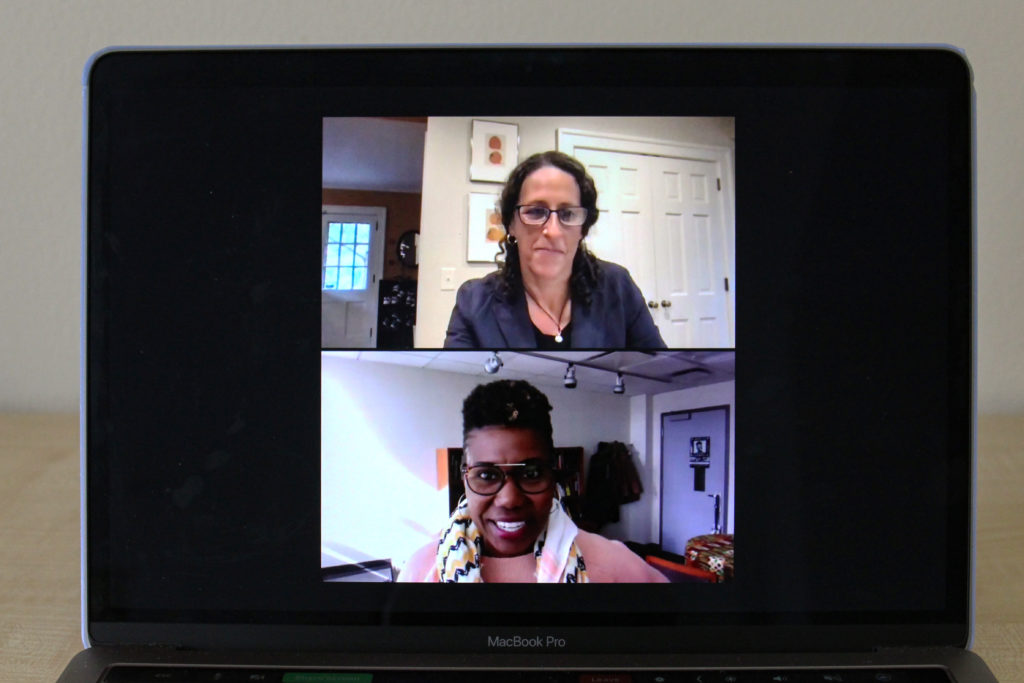The Institute for Middle East Studies held a virtual discussion on the use of digital storytelling in the new age of conflict between Israel and Palestine Thursday.
Rebecca Stein, an associate professor of cultural anthropology at Duke University, discussed how the increase in the use of cameras is changing the politics of the Arab-Israeli conflict, which is explained in Stein’s recent book, “Screen Shots: State Violence on Camera in Israel and Palestine.” Shana Marshall, an assistant research professor at the Elliott School of International Affairs, and Imani Cheers, a professor of media and public affairs, moderated the event.
Stein said “Screen Shots” is the second book in a multi-volume project that considers how the proliferation of cameras across the Arab-Israeli theatre changes the perception of state violence. She said although the conflict between Israel and Palestine is centuries old, it has evolved in the digital age through the use of cameras that victimize and gain supporters for both Palestinian rights activists and the Israeli government and defense forces.
She said there was a “digital promise” that greater visibility and more cameras capturing the conflict from multiple angles and collecting evidence would create a political narrative for each of the Israeli and Palestinian sides.
“My book is looking at all these different eyes on the scene of state violence, all these different investments in the camera and what happens when the camera is live when state violence unfolds,” Stein said.
She said the Israeli military believes that if the military has more cameras, the government can justify its actions and the occupation of historic Palestine. She said human rights activists supporting Palestine hope to use cameras to collect evidence of Israeli violence and secure international justice for Palestinians, but they’re failing because of Israeli military obstacles, like beatings and land occupations.
Stein said officials must have the original copy to use footage as evidence in a courtroom, requiring Palestinian videographers to physically deliver the video because of unreliable internet speeds.
“They had to actually deliver the memory stick or the VHS cassette physically to the West Jerusalem office across a highly militarized landscape of occupation with its numerous constraints and violently so on the Palestinian movement,” Stein said.
She said Israeli forces are adopting a “repudiation script” through their attempts to silence Palestinian activists and label their records as false. Stein said the Palestinian movement has run into failure in its inability to present footage that has been validated in court to prove the human rights abuses that Palestinians are facing.
“I’m proposing that a really important avenue into this archaeology of fake news is a visual arena,” she said. “Because the visual archive of state violence was such a profound piece of the story, these cameras became an incredibly important site of contestation.”
She said Palestinian witnesses have been unable to attain justice because the Israeli right-wing views them as “unreliable narrators” of their abuses and even their own history, land and the violence they face from Israeli forces.
“A lot of the processes that I’m tracking here are really an attempt to take colonial argumentation, colonial processes and update them in the digital age,” she said.








